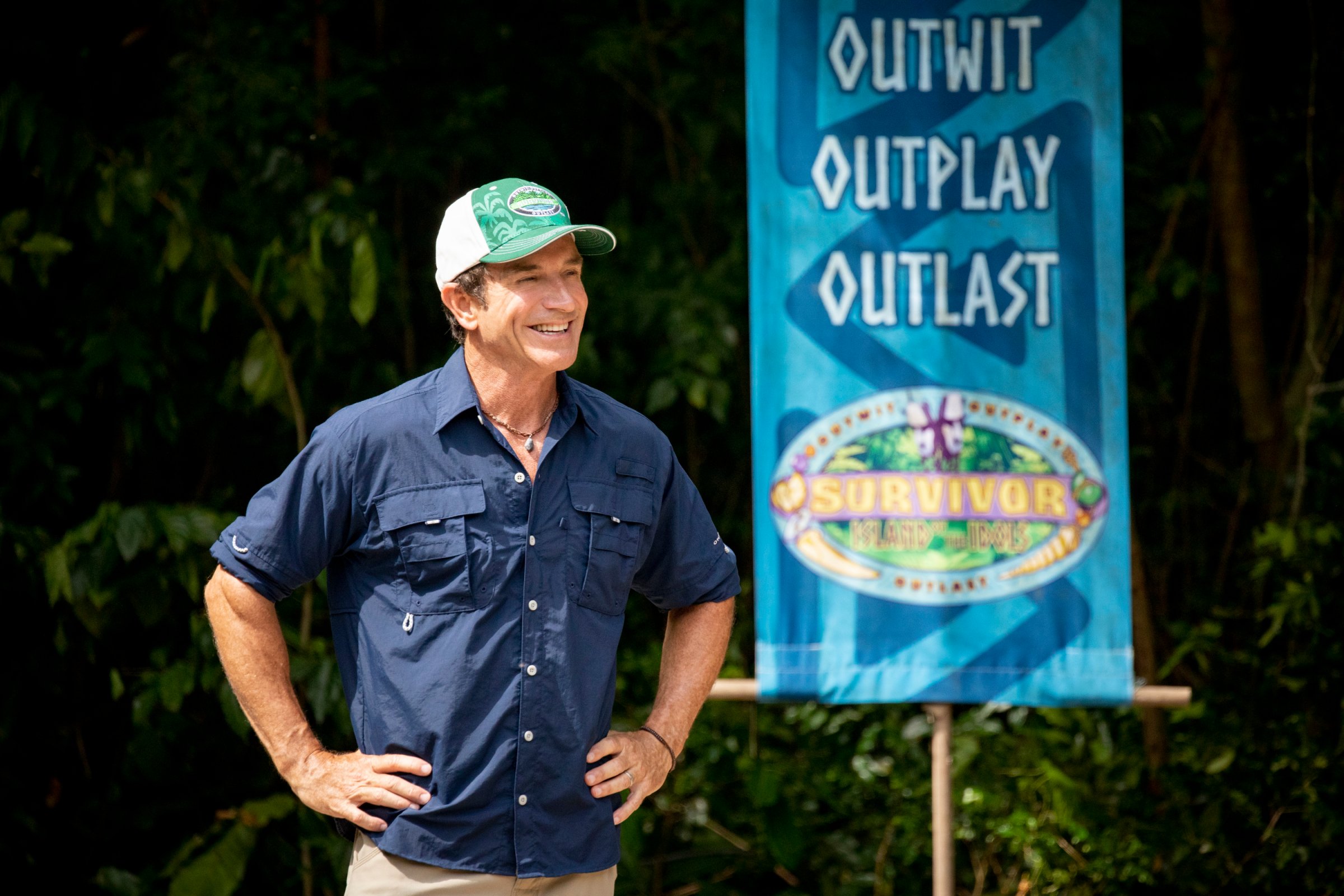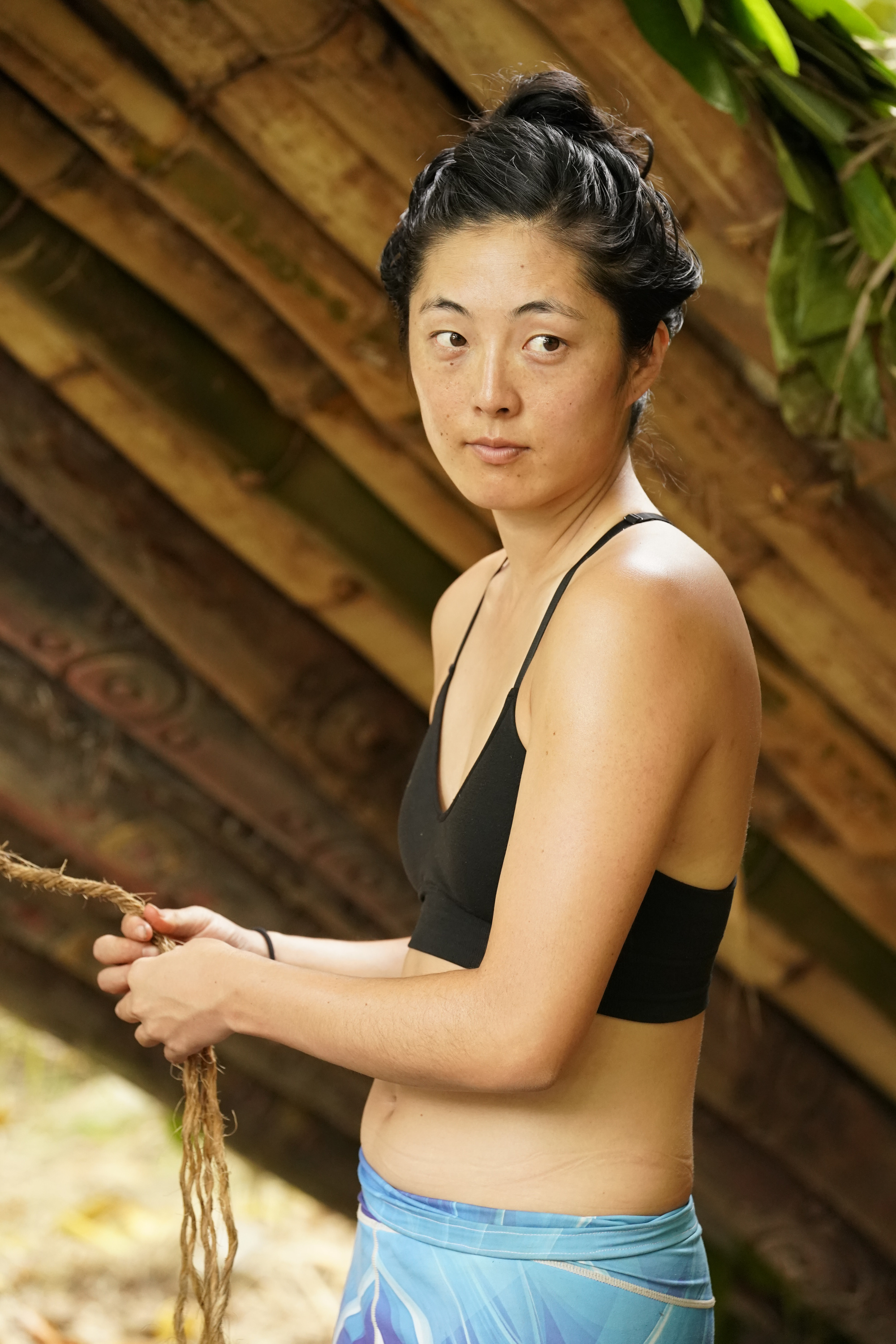
Angelina Cardona Keeley was a finalist on Survivor: David vs. Goliath. She is the founder of Ready to Run, a nonprofit organization focused on young women’s political empowerment.
Survivor, CBS’ flagship reality competition series, is having a #MeToo moment. For the first time in the show’s 39 seasons, an episode airing Wednesday night documented a contestant, Dan Spilo, being removed from the game — due to repeated occurrences of inappropriate and unwanted touching.

Spilo has not spoken publicly in recent weeks, aside from telling a paparazzi videographer that he was “not allowed to comment, sadly.”
“I wish I could comment, believe me,” he continued.
Attempts made by TIME to reach Spilo for comment were unsuccessful, though following the initial publication of this piece, Spilo provided a statement to People magazine in which he said he was “deeply sorry” for his actions. “I truly regret that anyone was made to feel uncomfortable by my behavior,” Spilo added.
With the show having earlier broken “the fourth wall” to include producers’ commentary and action behind-the-scenes, a title card at the conclusion of Wednesday’s episode read that Spilo was removed “after a report of another incident, which happened off-camera and did not involve a player.”
The word “another” here is key. From the season’s premiere episode, Spilo had been shown repeatedly touching female contestants; the show also documented several conversations between these women about how the interactions left them feeling uncomfortable. In the first episode, one of Spilo’s then-tribemates, Kellee Kim, spoke candidly with him about his behavior, and asked him to stop.
Spilo did not stop. This eventually resulted in producers issuing him what the show described as an “official warning” at the season’s mid-point (in Survivor lingo, the tribal “merge”). At this point, producers also spoke off-camera with the remaining contestants to let them know assistance would be made available to them if they ever felt unsafe or uncomfortable — though, it has been reported, without making any reference to Spilo’s behavior or its impact specifically.
As a former Survivor contestant, women’s activist, and survivor of sexual harassment and stalking, let me be clear: inappropriate and unwanted touching (in this instance targeted specifically at young women) is sexual harassment, and should be referred to as such.
Recent revelations and reporting on the #MeToo movement have proven to be just the latest evidence that harassment and sexual violence remain prevalent in our society, whether manifested during a gameshow playing out in Fiji or in the halls of corporate America. More must be done to address — and most importantly, prevent — these situations from arising in the first place.
Survivor pushed me beyond my wildest boundaries. The game creates an environment that is simultaneously exhilarating and exhausting, spectacular and stressful. It necessitates quickly developing close bonds with complete strangers, fitting in with deliberately diverse groupings, and “making moves” without making waves. All of this while starving on less than 100 calories of rice per day, having only the set of clothes on your back, sleeping in the elements, and being completely isolated from the real world.
While going outside one’s comfort zone is part of the experience, though, no contestant or crew member should ever be made to feel unsafe. It is the responsibility of Survivor‘s production team to create and maintain an appropriate filming environment. In this respect, production failed.
Keeping Spilo in play after multiple instances of harassment was irresponsible; damaging to both his fellow contestants’ well-being and the integrity of the game as a whole. The pattern of inappropriate behavior justified his removal much earlier than the point at which production did step in. Whatever messaging production provided the cast during filming — as well as the warning given to Spilo specifically — was either not clear enough, or was otherwise ignored; ambiguities surrounding this response to Spilo’s behavior and eventual ejection have played out on TV in a manner likewise lacking in the transparency required from a network arguing it did its best. To give just one example: Survivor aired audio of an (off-camera) producer consoling Kim after she broke down over Spilo’s behavior, so why not include audio of the ensuing conversations?
Alongside reconsidering the show’s response and duty of care during filming, it’s clear more must be done during pre-production to set clear expectations of contestants’ conduct.
All Survivor contestants sign a 100+ page contract prior to their participation on the show; Survivor and CBS must, moving forward, incorporate clear language that calls out sexual harassment and inappropriate or unwanted touching of any kind as grounds for immediate removal from the game. Additionally, production should reinforce this code of conduct, and their expectations of contestants, during pre-game preparations — a few days on location pre-filming, during which contestants undergo interviews with the press, a medical check-up and swim test, amongst other things. The onus should not be on contestants to “take matters into their own hands” in such problematic circumstances, even under the guise of retaining an authentic “social experiment.”

Next week’s finale and reunion will serve as an opportunity for Survivor to step up, though, and make this season’s transgressions a teachable moment for the show’s still-sizeable audience. (Nielsen ratings for this season have remained consistent between 8.5-9 million viewers tuning in each week.) This does not erase the damage done, to be clear, but is a necessary step in illustrating the show’s commitment to change, and to do better — even if that may be rather overdue. During the reunion, I’m calling for Survivor and its host/executive producer Jeff Probst to label Spilo’s behavior as what it is: sexual harassment.
It has been reported that Spilo will not be invited to participate in the finale broadcast; also that the reunion will — for the first time — be pre-taped, apparently to afford the contestants a safer space to discuss their retrospective take on the season. Kim, the contestant arguably most impacted by Spilo’s behavior, should be given the time to respond fully (an opportunity not afforded to her during filming) and her statements should not be edited or altered in any way. I likewise encourage the season’s other contestants (many of whom have spoken of understanding the ‘bigger picture’ beyond their in-game perspective as episodes aired) to speak up for what is right.
“While I wish many things had gone differently, I’m glad that my decision to speak up made a difference,” Kim said in a statement released on Twitter on Wednesday, adding that she wished “no one else had been subjected to [Spilo’s] behavior” prior to his ejection.
CBS did not immediately respond to TIME’s request for confirmation on their plans for the reunion show (nor the specifics of any potential amendments to contestants’ contracts or the show’s “process” moving forward, as Probst had discussed in vague terms in interviews released on Thursday).
And, as with any show dealing with a sensitive subject matter, Survivor now has a responsibility to support its viewers — many of whom have reacted strongly to the incidents as broadcast, and expressed their dissatisfaction with the show’s handling thereof. The finale broadcast must include a list of national sexual harassment resources; these resources should also be made available and linked across all the show’s social media and web platforms.
Ultimately, though, we must not lose sight of the single most important part of this storyline: until those who perpetrate sexual harassment stop their behaviors, the problem will continue to infest every corner of society. We wouldn’t be having this conversation had Spilo listened to requests that he keep his hands to himself.
As perhaps the most well-known Survivor saying goes, week after week on the show: the tribe has spoken. In the #MeToo era, women have spoken. Women are still speaking. And in this context, as in every context, we are determined to be heard.
Update Dec. 18: Days after the publication of this piece, CBS confirmed forthcoming changes to Survivor and the care it provides contestants both during and after filming. Acknowledging that “there are things we could have done differently,” CBS says “we are determined to do better going forward.” New guidance and support provided by the show will include the addition of an on-site professional to provide confidential means of reporting concerns, an orientation that involves anti-harassment, unconscious bias and sensitivity training and, specifically, a new rule that forbids unwelcome physical contact, sexual harassment and impermissible biases as part of the competition.
More Must-Reads from TIME
- Donald Trump Is TIME's 2024 Person of the Year
- Why We Chose Trump as Person of the Year
- Is Intermittent Fasting Good or Bad for You?
- The 100 Must-Read Books of 2024
- The 20 Best Christmas TV Episodes
- Column: If Optimism Feels Ridiculous Now, Try Hope
- The Future of Climate Action Is Trade Policy
- Merle Bombardieri Is Helping People Make the Baby Decision
Contact us at letters@time.com